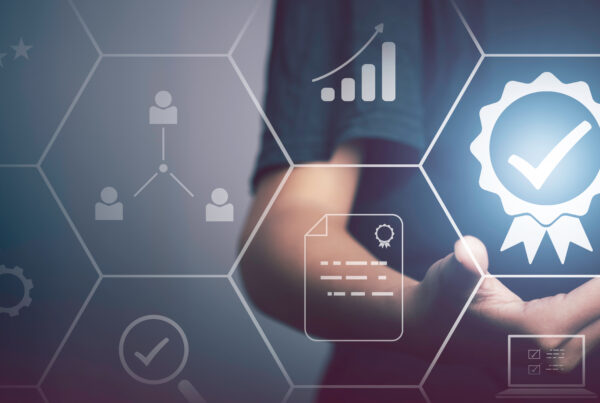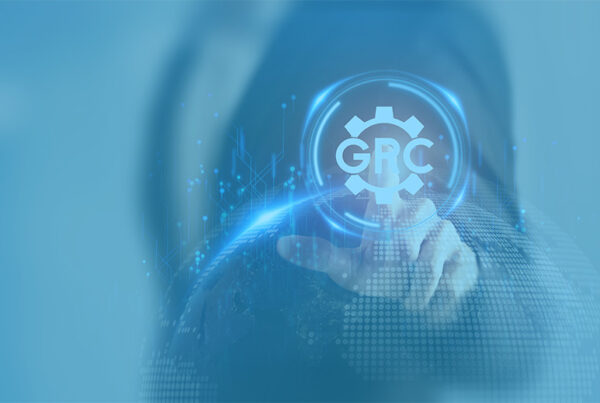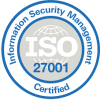As we venture deeper into the digital era, the role of Artificial Intelligence (AI) in Governance, Risk Management, and Compliance (GRC) cannot be overstated. Cognitive GRC (what GRC 20/20 refers to as GRC 5.0: Cognitive GRC) is the intersection of GRC and AI, promising a future where GRC is not just a bureaucratic necessity but a strategic enabler of business performance and resilience.
Cognitive GRC refers to the application of AI (cognitive technologies) to GRC functions, effectively facilitating intelligent, automated, and informed decision-making processes that minimize risk and ensure compliance. AI brings unprecedented efficiency, effectiveness, resilience, and agility through the cognitive automation of GRC, allowing organizations to respond proactively to risks and compliance and gain insights to navigate the organization and achieve objectives in an era of uncertainty.
Consider the following AI technologies and some examples of their potential Cognitive GRC use cases:
- Machine Learning. Machine Learning is a subset of AI that allows systems to learn from data without explicit programming. Machine Learning can analyze historical data to predict future risks, aiding in proactive risk management. For instance, Machine Learning algorithms can scrutinize past financial transactions to forecast and prevent fraud.
- Natural Language Processing. Natural Language Processing enables machines to read, understand, and interpret human language. Natural Language Processing simplifies the interpretation and analysis of regulatory texts and compliance documentation, making it easier for organizations to understand and adhere to complex legal requirements.
- Expert Systems. Expert Systems are computer systems that mimic the decision-making abilities of a human expert. In governance, these systems aid in making informed decisions by providing insights based on accumulated knowledge and data.
- Neural Networks. These are algorithms modeled after the human brain, designed to recognize patterns. Neural networks are instrumental in detecting anomalies and patterns in vast datasets, helping identify potential risks or compliance breaches.
- Robotics Process Automation. Robotic Process Automation is the use of software robots to automate highly repetitive and routine tasks. Robotic Process Automation can automate compliance reporting, data collection, and risk monitoring processes, reducing human error, and improving efficiency.
- Generative AI. Generative AI can create new data like the data it was trained on. This can generate policies or control documentation, answer GRC questions, create risk scenarios, or generate data sets for stress testing and compliance training models. For instance, generative AI can produce synthetic financial transactions to test the efficacy of fraud detection systems without compromising real customer data.
The range of AI technologies integrated together delivers significant benefits to the organization. The benefits of Cognitive GRC include:
- Proactive Risk Management. AI and cognitive technologies facilitate real-time data analysis, helping organizations identify and mitigate risks before they escalate.
- Enhanced Compliance Monitoring. With AI, companies can automate the monitoring of compliance adherence, swiftly identifying and addressing violations.
- Informed Decision-Making. Cognitive GRC supports governance by providing decision-makers with intelligent insights derived from data analysis, fostering informed and strategic decision-making.
- Efficient Resource Allocation. AI enables organizations to allocate their human and financial resources more efficiently through automation and intelligent analysis, focusing on strategic, high-value activities while automating routine GRC tasks.
While AI presents enormous potential for transforming GRC, organizations must also navigate challenges such as:
- Data Privacy and Security. Ensuring the security and privacy of data processed by AI systems is paramount.
- Ethical Considerations. Organizations must use AI responsibly and ethically, avoiding bias and discrimination in AI decision-making.
- Regulatory Compliance. As AI is a relatively new field, organizations must stay abreast of and compliant with emerging regulations governing AI’s use. This brings into focus A.I. GRC – the governance, risk management, and compliance of A.I. use within the organization.
Cognitive GRC marks a significant paradigm shift in how organizations approach governance, risk management, and compliance. By harnessing the power of AI and cognitive technologies, firms can look forward to a future where GRC is not only streamlined and efficient but also proactive and intelligent. As we stand on the cusp of this exciting frontier, the promise of Cognitive GRC is not just about automation but also about elevating GRC to be a strategic partner in business success and sustainability.





